Outlook.com embraces IMAP

Earlier today Microsoft introduced IMAP support for its Outlook.com email service. The latest addition is designed to allow feature phone users and those who rely on a number of third-party email clients, such as the Mail app from OS X, to take advantage of email sync.
IMAP joins Exchange ActiveSync and POP as the supported Outlook.com protocols and falls between the two, in terms of functionality (EAS is more feature-rich compared to POP). "While we believe that EAS is the most robust protocol for connecting to your email, with syncing in near real time, and superior battery and network efficiency, there are still some devices and apps that haven't made the upgrade to EAS", says Outlook.com Protocols principal program manager lead Steve Kafka. "As an older protocol, IMAP is widely supported on feature phones and other email clients such as those on a Mac. We heard your feedback loud and clear that this was important".
How to delete or disable (almost) all of your accounts from the cloud

Over the years I have amassed a vast collection of unused accounts on websites. I am sure you have too. I have signed up for various online services -- email, cloud storage, content streaming, social networking and more -- with the prospect of trying new things or replacing old ones. The antiquated accounts got left behind, abandoned or forgotten.
The downsides, at least for me, are the constant email reminders which I receive, trying to pull me back in, or, worse, the likelihood of exposing personal information to hackers (if I don't use something then I surely will not change my password frequently or enable new security features). The solution? The unused accounts have to go. And Just Delete Me is one of the best services to help do that.
NTT Docomo to offer new iPhones in Japan
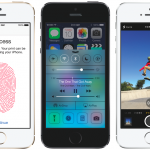
Apple is trying to boost its smartphone market share in Japan by teaming up with the largest local mobile operator, NTT Docomo. Through this agreement, the latter will officially offer the new iPhone 5S and iPhone 5C, that were unveiled during a special event yesterday, in the land of the rising sun.
"NTT Docomo has built an impressive network, the largest in the nation with over 60 million customers", says Apple CEO Tim Cook. The large userbase should allow the Cupertino, Calif.-based corporation to grab a bigger slice of the Japanese smartphone market, which is heavily dominated by Android handsets. "We've enjoyed tremendous success with iPhone in Japan, in fact it's the top selling smartphone in the country, and we look forward to delivering iPhone into even more customers' hands through NTT Docomo", adds Cook.
With iPhone 5C Apple takes a stab at the mid-range smartphone market
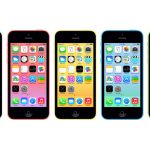
Apple changed the smartphone market dramatically with the original iPhone, which launched in mid-2007. The company took the world by surprise as it reenvisioned the basic smartphone concept by forgoing the (typical) unintuitive user interfaces and adopting a simpler, hardware and software, design instead. The iPhone had turned Apple into the top smartphone vendor, a title which the Cupertino, Calif.-based corporation can no longer claim today. Why?
The short answer is "Android". The long one is a bit more complicated. Apple began changing the smartphone market in 2007, but the smartphone market changed as well since then. The iPhone was and still is a flagship product, a high-end handset with the price to reflect it. Consumers, however, have been slowly moving away from that price range and type of device to cheaper, mid-range and low-end products. According to an IDC report from June, the smartphone average selling price (ASP) dropped from $443 in 2011 to $372 in the first half of 2013, and is expected to drop even further, to $309 by 2017. That is a price-bracket that Apple could not tap into, as it had no product to fight with. The iPhone 5C, that the company just unveiled during a special event, is designed to change that.
According to Google, your Windows Phone is a feature phone

Google is renowned for its lack of Windows Phone support. The search giant has only released one app for the tiled smartphone operating system, and that is basically just a portal to the mobile Google Search page. Windows Phone users get none of the popular apps launched on Android or iOS -- YouTube, Gmail, Google Drive or Google Now. That doesn't look like it will change in the near future, unless Windows Phone's market share is significant enough for the company to notice (which is a far-fetched scenario anyway).
Sadly, Google also shows its lack of Windows Phone support at browser level. Those who wish to access the Gmail website from a handset running the tiled OS are greeted with a plain ugly interface, while Android, iOS and even BlackBerry users get treated to the latest smartphone-optimized design. As a Windows Phone user I had hoped that this would change, but it looks like Google has other plans in mind, as, surprisingly, it considers the tiled smartphone OS to be of the feature phone kind.
Samsung Galaxy Note 3 available for pre-order at AT&T, coming soon to T-Mobile and Verizon
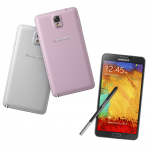
Shortly after South Korean maker Samsung revealed the Galaxy Note 3, US mobile operators AT&T, T-Mobile and Verizon have announced important details related to the availability of the new smartphone in their respective portfolios.
The Galaxy Note 3 will first reach AT&T, where the smartphone is now available to pre-order, in Classic White and Jet Black color trims, for $299.99, alongside a two-year contract. The orders are expected to ship starting October 1. Alternatively, subscribers can also get the handset for $35 per month, through the AT&T Next program (it allows folks to switch to a new smartphone every year, instead of waiting the usual 24 months, by trading in the old one).
Jelly Bean speeds up, Gingerbread and Ice Cream Sandwich slow down

Unsurprisingly, Jelly Bean continues to increase its dominance in the green droid distribution charts, with the latest sweet in the family running on more than 45 percent of all Android devices visiting Google Play during the seven days ending September 4.
In the latest distribution charts, the first two Jelly Bean iterations -- Android 4.1 (36.6 percent) and Android 4.2 (8.5 percent) -- have a combined share of 45.1 percent, a number that is 4.7 percentage points higher compared to the previous data set that was released in early-August. A month ago, Jelly Bean had a 40.5 percent distribution level (34 percent for Android 4.1 and 6.5 percent for Android 4.2).
ASUS showcases its new uber-cool Zenbook UX301 ultrabook
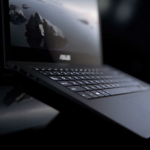
I have a bit of a confession to make: I rarely get excited by new tech products. It's not because they are bad (well, in most cases they are not), but rather due to their inability to make me see myself using them. A handset can't really get my heart racing when it looks almost exactly as every other similar device on the market (and, no, I'm not taking a stab at the iPhone here), no matter how hard I try to see the light.
There is, however, a genre which appeals to me -- ultrabooks. Why? Well, manufacturers are so desperate to get people's attention away from the traditional product in this segment -- Apple's MacBook Air -- that they go to great lengths to make their products stand out from the crowd, like a color arc in a rainbow. And that is a good thing. Just look at Acer and its dazzling Aspire S7 or ASUS and its striking Zenbook lineup, the latest member of which is the UX301 that was just teased at IFA. (They're appealing and inviting.)
Steve Ballmer addresses Microsoft employees, following acquisition of Nokia's Devices & Services
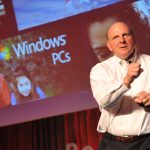
Earlier today, Microsoft announced that it is buying Nokia's Devices & Services business and licensing the rights to use the Finnish company's patents, in a deal which will cost the software giant a mere €5.44 billion in cash. Microsoft will pay €3.79 billion for the phone-making arm and another €1.65 billion to take advantage of the patents. Also included in the terms of the arrangement is a separate HERE license, which will give Microsoft the right to use Nokia's mapping services in its products.
Following the announcement, Microsoft CEO Steve Ballmer sent out an email to the software giant's employees, explaining what the purchase of Nokia's phone-making business entails for Microsoft's corporate structure as well as its future strategy. Ballmer previously revealed that he will retire within a year. Coupled with the latest news, this will undoubtedly further fuel the already heated debate, surrounding his successor.
Microsoft to buy Nokia's phone business for just €3.79B

That's not a bad deal -- far from it, in fact. Nokia is leading the pack on Windows Phone sales, has a broad patent portfolio and a former Microsoft executive -- Stephen Elop -- as CEO. The software giant is buying the Finnish company's Devices & Services business -- its phone arm -- and the right to use its patents for just €5.44 billion. Yes, that's right -- just €5.44 billion.
That is considerably less than what Microsoft paid for Skype -- $8.5 billion -- in 2010. Both deals involve trading cash, but whereas the latter has yet to bear fruit across all of Microsoft's services, the former is actually at the forefront of turning Windows Phone -- the software giant's smartphone operating system -- into a solid mobile proposition and competitor to Android and iOS. Not a bad deal.
Windows Phone is a 'real adversary' to Android and iOS

Or is it? It's not often that I see Windows Phone linked to being a "key player" on the smartphone market (quite the contrary, if some pundits are to be believed). But, according to a new report from Kantar Worldpanel Comtech, it appears that Microsoft's operating system has established itself as a "real adversary" to Android and iOS. That appears to be no small feat.
Between May and July 2013, Windows Phones accounted for 8.2 percent of all smartphone sales in five major European markets -- France, Germany, Italy, Spain and UK. Compared to the same time-frame from last year (when it had 4.9 percent market share), the OS grew by 3.3 percentage points, or 67.34 percent. That is a sizeable increase, however one that did not lead to Windows Phone's market share hitting double digits in a larger region (which, in my opinion, is a noteworthy steppingstone for any podium contender).
BlackBerry Q10 is NOW available at Sprint
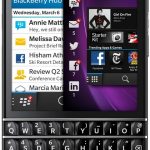
The BlackBerry Q10 was officially unveiled by the Canadian maker during a special event held in late-January. But, sadly for impatient US fans, the QWERTY smartphone only arrived in June at local mobile operators Verizon, T-Mobile and AT&T. Furthermore, Sprint subscribers had to wait even longer to get their hands on the new device.
Good news! Starting today, the BlackBerry Q10 is available at Sprint, after "just" seven months since its unveiling. The US mobile operator offers the smartphone for $99.99, alongside a traditional two-year agreement.
Nokia announces HERE Connected Driving in-car navigation solution

On Friday, Finnish mobile maker Nokia announced HERE Connected Driving, a cloud-connected in-car navigation solution with offline mapping, real-time traffic information and mobile device app support. Labeled by the company as "the only end-to-end driving solution on the market", it will be officially demoed during the International Motor Show in Frankfurt, Germany.
Nokia's in-car navigation solution is comprised of four parts -- HERE Auto, HERE Auto Cloud, HERE Auto Companion and HERE Traffic. HERE Auto takes care of navigation instructions, with or without a data connection, similar to the company's HERE Drive+ Windows Phone 8 app. It provides turn-by-turn voice-guided navigation in 95 countries, while supporting 2D, 3D and satellite map views (street imagery is also included). According to Nokia, Continental's Open Infotainment Platform already integrates HERE Auto and it is expected to arrive in cars in upcoming months.
Motorola's Moto X lands at Verizon
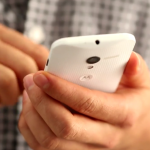
Mobile operator backing is instrumental in ensuring strong Motorola Moto X sales, as most US wireless subscribers are unlikely to switch carriers in upcoming months. AT&T leads the way, having offered the handset since late last week. And, now, another local mobile operator joins the Moto X bandwagon.
Starting today, Verizon officially carries the new Android handset. The Moto X is available at big red for $199.99, alongside the customary two-year agreement, but can also be had with month-to-month plans for $599.99.
Most iOS and Windows Phone apps are 'dead'
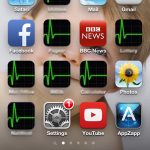
It's no secret that most mobile users only install a tiny fraction of the total number of apps available in the relevant stores. There are hundreds of thousands of offerings for Android, iOS and Windows Phone, but the vast majority will never make it onto your smartphone or tablet -- some cater to a very specific audience (like root-only apps for Android), some are designed for certain local markets (Internet banking apps, for instance) and some are plain dreadful (half-baked third-party clients spring to mind). It comes as no surprise then that there are apps that users don't even know about or which developers have abandoned entirely. The question is: How many?
Well, according to a new infographic that was just released by StarDust, over 41 percent of all Android apps available in Google Play can be deemed as "dead" -- they have received less than 10 reviews and ratings and not a single update throughout their existence -- while a more significant 65 percent of all iOS apps in the Apple App Store and 69 percent of all Windows Phone apps in the Windows Phone Store share a similar fate. The numbers are staggering, and show that it's not easy to make an app popular. The low number of reviews indicate abysmal user awareness and interest, which may have lead to the developers ceasing to release updates (and vice-versa).
Mihăiță's Bio
Mihăiță Bamburic is the resident staff writer, reporting technology news from Europe. He focuses on mobile computing, covering the latest smartphones, tablets, laptops and apps. He also frequently writes editorials, analyzing companies and products that have a deep impact on consumer-facing technology.
Ethics Statement© 1998-2025 BetaNews, Inc. All Rights Reserved. Privacy Policy - Cookie Policy.
